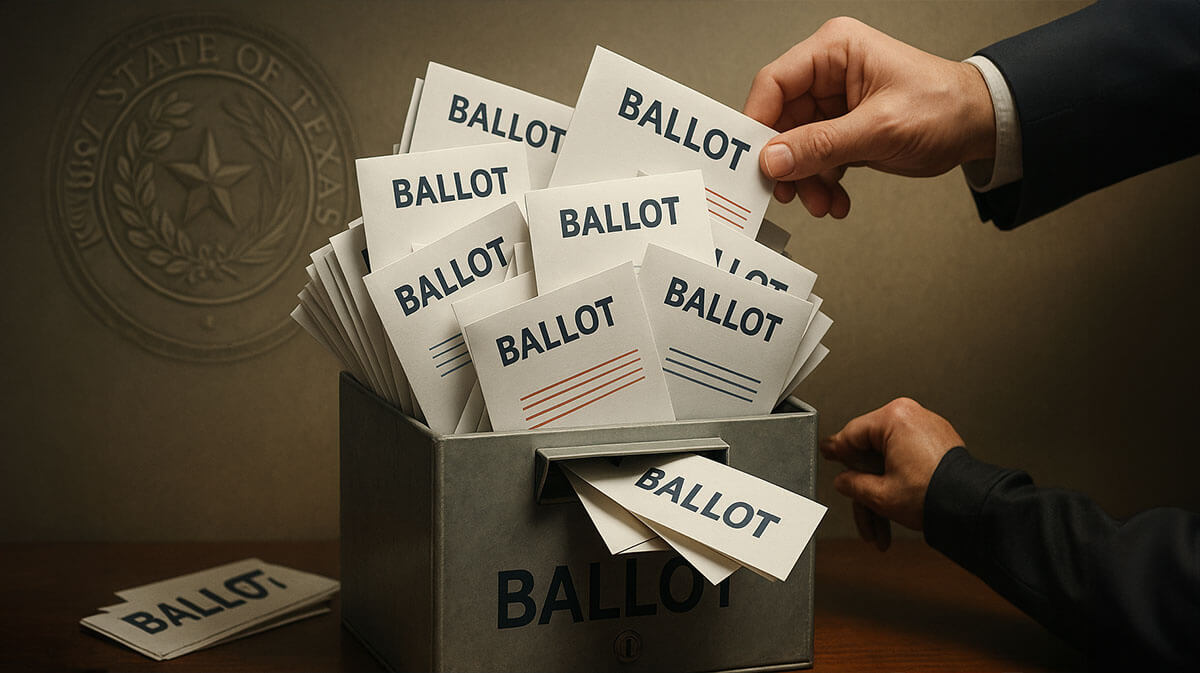A Democratic judge from Frio County, Texas, has found herself at the center of a legal storm following her indictment on charges linked to an alleged ballot harvesting scheme during her 2022 primary campaign. Texas Attorney General Ken Paxton released a statement on Wednesday detailing the arrest of Rochelle Lozano Camacho, the judge in question, as well as five additional individuals, including Camacho's sister, who is the county election administrator, two city council members of Pearsall, and another woman implicated in the operation.
The investigation into the accused activities, which spanned several years, centered on allegations that Camacho engaged a seasoned political operative to collect mail-in ballots, help voters with applications, and transport them to the polls. Compensation for these services allegedly ranged between $1,500 and $2,000. Notably, the operation targeted elderly residents in a specific subdivision in Pearsall, where one accuser claimed to have seen an aide to Camacho hiding ballots under her clothing while gathering them from seniors' homes.
Camacho's campaign messaging emphasized themes of "UNITY, MOVEMENT, and PROGRESSION FOR FRIO COUNTY." She also made social media posts about the start of mail-in ballot distribution, which were reported by Trending Politics. Her efforts seemingly paid off when she won her primary by a mere 157 votes and subsequently succeeded in the runoff by only 72 votes out of 322 cast.
Ballot harvesting, or the collection and submission of completed absentee or mail-in ballots on behalf of voters, is at the heart of these charges. While legal in some states, Texas law strictly prohibits the practice, with violations potentially leading to a prison sentence of up to ten years and fines reaching $10,000. Critics of ballot harvesting highlight the risk of electoral fraud, especially following expanded mail-in voting during the pandemic.
Attorney General Paxton, who has ambitions to challenge Senator John Cornyn in the 2026 Republican primary, underscored the gravity of the situation, asserting that elected officials attempting to cheat will face consequences and that "No one is above the law." His office has previously achieved four convictions related to ballot harvesting during the 2020 election cycle, including that of an elected county commissioner.
The suspects in the current case were taken into custody on May 2nd, with Camacho expected to be processed subsequently. This incident adds to a series of voter fraud allegations and mishaps across the United States, such as a guilty plea from a Colorado postal worker for attempting to tamper with ballots, the arson-related destruction of ballots in Washington State, and the misdelivery of approximately 100,000 ballots in Arizona, which provoked criticism of the state's Democratic secretary of state even from within her own party.





